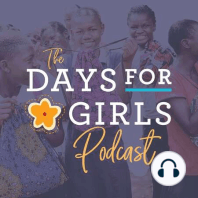2 min listen

Episode 039: The Effects of Menstrual Health on School Attendance in Kenya with Karen Austrian
Episode 039: The Effects of Menstrual Health on School Attendance in Kenya with Karen Austrian
ratings:
Length:
37 minutes
Released:
Mar 15, 2022
Format:
Podcast episode
Description
Karen Austrian is a director at the Population Council, where she leads the Council's Girl Innovation, Research and Learning Center: a global research hub that generates, synthesizes and translates evidence on adolescents to support investments that transform their lives, especially for girls. She specializes in developing, implementing and evaluating research-driven programs that build protective assets for girls.In this episode, Karen dives into her journey in policy-driven research and programming for girls; unpacks the nuanced issue of gendered school absenteeism; shares key findings on the relationship between MHH/SRH education and body confidence; and explains why she always “lets the evidence (of the lived experiences of youth) shape the response.”Highlights:How Population Council drives impact through policy-relevant research to improve the lives of vulnerable populations.All about the Nia Project: a study of more than 3,000 adolescent girls in 140 primary schools in Kilifi, Kenya, that rigorously evaluated the impact of menstrual health education and period products on school attendance rates. Study findings on the positive impacts of MHH interventions – including equitability of gender norms; improved menstrual, sexual and reproductive health knowledge; reduced menstrual stigma and shame; and improved confidence/self-efficacy.The complex issue of gendered school attendance rates – and why we shouldn’t view period product distribution as a silver bullet for keeping girls in school.Other factors driving school drop-outs, including lack of disposable income for school fees, domestic/familial duties taking priority.How MHH education can serve as an access point into broader discussions about sexual and reproductive health with teen girls.How Girl Roster improves data collection and program outcomes through demographic tracking assistance.The importance of taking an integrated approach to research Connect:Website: https://www.popcouncil.org/research/expert/karen-austrianEmail: kaustrian@popcouncil.orgBio:Karen Austrian is the director of the Population Council, where she leads the Council's Girl Innovation, Research and Learning Center: a global research hub that generates, synthesizes and translates evidence on adolescents to support investments that transform their lives, especially for girls. Prior to stepping into this role, Austrian led a portfolio of projects designed to empower girls in East and Southern Africa. She develops, implements and evaluates programs that build girls protective assets, such as financial literacy, social safety nets and access to education.Support the showPlease support us at daysforgirls.org
Released:
Mar 15, 2022
Format:
Podcast episode
Titles in the series (51)
Trailer by The Days for Girls Podcast